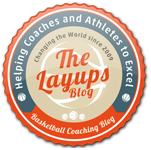The power and drive behind an athlete’s success is usually fired by perfectionism. Most athletes want to dominate their sport bringing home the victory. There are times in many athletes’ lives when their personal love of the game is brought to the public eye through the media. It is important whether an athlete is a child, adult amateur, or professional that they know how to handle themselves in front of a reporter.
The camera may only capture 60 seconds of an athlete’s life but it can be replayed for millions of viewers for decades. Time in front of the media is very important to every athlete because it gives one the opportunity to express oneself for the greater good of the team, your athletic career, and to gain much needed support from your community.
A good athlete knows that the support of one’s community can give one greater overall success. Here are some tips on what to say in a news interview. Remember that you don’t always have the opportunity to make a second impression so be sure to practice how to present yourself to the public. Practice in front of a mirror, with a family member or friend, or in front of a video recorder so that you can obtain feedback on your presentation.
- Research different types of interviews done by your favorite players. Watch local sporting news programs. Read interviews in local newspapers done with athletes. Review the types of questions that are asked by the reporters. Write out the questions and your answers in a notebook. Think about how you would answer the questions if you were the athlete being interviewed. Truly think about what image you want to represent you and your team.
- Look at the interviewer and make eye contact when speaking to them. Do not look down at your shoes or over their head. If the interview is on camera when answering the question, look into the camera, and stand up straight. Have good posture. Make sure that you have a pleasant, relaxed facial expression.
- Practice basic grammar rules. Speak clearly and concisely. Enunciation is very important when communicating with the public.
- If you do not hear the question when asked by the reporter or media personnel politely ask for clarification before answering the question. You can say a phrase like, “May I have you repeat that question, thank you,” or “I do apologize, please repeat that question for me. Thank you very much.” Do not randomly answer if you do not hear the question nor give a pat answer. Answering the question asked properly is important to the viewer and will ensure that you have the presence of an intelligent individual.
- Paraphrase a question back to the reporter to ensure that you both share the same understanding of the question. If you are confused about what a question means or the intent of the reporters questioning you will find paraphrasing is useful to avoid major media blunders. An example is as follows. A reporter may ask you what types of things you do regularly. This leaves things a little unclear because you are not sure if the reporter means for: conditioning, drills, eating practices, for fun, etc. Paraphrase the question back to the reporter. Say something like: “You are asking me what types of things I do regularly for strength training and conditioning to make me a successful athlete, correct?” Now it is the reporter’s responsibility to either confirm yes to the question you posed in your paraphrase or restate their question with a little more clarity.
- Remember that the person asking the question is interested in your response. They want to know what you think and how you feel about the topic. Their job is predicated on getting your opinion. So it is ok to pause, take a breath, and smile.
Photo credit: aaronisnotcool

